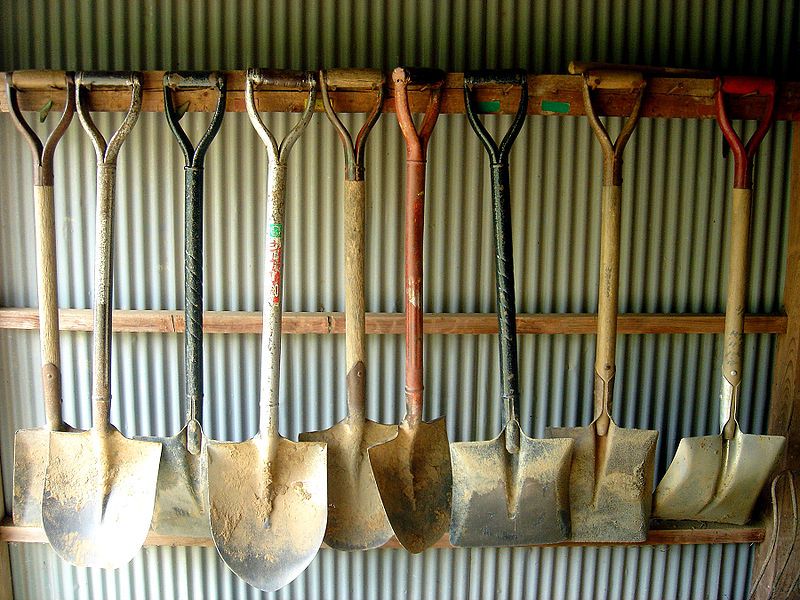The value of care

I am often asked how do we talk about the value of the NDIS? Why is there such a focus on the Scheme costs, and nothing on the benefits? How can we push back on the constant economic attacks on the very existence of the NDIS?
And while I can give messaging and media tips about this, the broader issue is that the work of care, the labour of care work and the value of care are devalued because of the very kind of work that it is, who does that work, and who is seen to be cared for.
Care is excluded from what is seen as valuable, and certainly not seen as entirely fundamental to other economic activity. I don’t mean this in ‘I have an opinion way’, but in a how our very economy is measured kind of way. Care is somehow also not a public good, or a public service, but sits between government and market, in this non-counted, non-valued space.
These beliefs are fundamental to mainstream economics, which underpins much of the various government departments of treasury and finance, as well as pontificators in finance and business publications which are seen as ‘serious’. The folks that go to work in those departments, and write for those publications, are trained in this economics, in this exclusion. They imagine an autonomous, mostly male, white person, that exists outside the myriad webs of care that enable that person to function.
Mainstream economists, such as those at the e61 institute, then get to publish research notes that ask ‘What if we didn’t care’, which are covered breathlessly by the Financial Review (‘NDIS is sucking in workers from more efficient jobs’) and the Australian, all lamenting the growth of public spending on care as a productivity sap on the actual real economy. Neither publication, or the original research note tries to answer the question about caring. What if that care work didn’t happen? What other work would be impossible then?
This research note states that ‘reallocation [of labour] towards the care economy has reduced economy-wide measures of labour productivity.’ Whoops! All those women now working in care work are damaging the overall productivity of the economy.
Even though the ‘impact of the care economy on the productivity slowdown could be higher or lower than our estimated reallocation effect’, they still get to make such sweeping statements that have fuelled the Australian to write a polemic against this care work where ‘more is produced in the “non-market sector”, which are industries that provide goods or services free of charge or sold at highly subsidised prices.’ Imagine.
The children being fed, the homes being cleaned, the older people being taken to the doctor, the disabled people going to work. All of that pesky care work that enables so much other work just vanishes. Who is doing this work if it isn’t being paid for, I wonder, in the minds of such eminent economists?
This kind of attitude is built upon decades of those economists excluding unpaid labour, and paid care work from ‘real’ economic activity. Marilyn Waring wrote about the fundamentals of economic measures such as GDP baking in the exclusion of the work of care. She says that in her research she found that ‘On the other side of the boundary of production, there was this extraordinary phrase in the rules that the work done by the people they called "nonprimary producers" was "of little or no value."’
Wild hey. The work of caring for people, children, babies, communities, seen as having little value.
In Who Cooked Adam Smith’s Dinner, Katrine Marçal says that ‘the action of caring in both paid and unpaid work have been consistently left out or undervalued within the economic sphere precisely because they are constructed as ‘women’s work’’ and that ‘The omission of unpaid care from economic life, and the undervaluing of feminised work spheres such as care work, teaching, nursing and the gender pay gap across all industries are no coincidence.’
No coincidence indeed - there is no way of separating off some kinds of labour from the connective tissue of care work, as though that labour happens magically without care. And yet, this idea persists. In the Care Manifesto, the authors call this ‘social carelessness’ and argue that the climate crisis, austerity and the responses to the pandemic ‘are interrelated, for each is connected to the market-driven lack of care at every level of society.’
The idea that care work, care labour could be instead central to everything else doesn’t occur to the men in suits writing op-eds, while someone else cooks their dinner.
All this influences how disability care and support, including the NDIS, are thought of and limits how this is discussed, and valued. This is also deeply connected to how disabled people ourselves are valued.
I’ve argued before that disabled people have the biggest stake in understanding care and support. Our lives are often intertwined in the interdependence of family, community and the state; of strangers and friends; of love and neglect.
The NDIS is often talked about as though it landed from out of space, as though spending on disability care and support work had never happened before. The previous system of state and territory spending, and the private spending, both financial and time, of disabled people and families just fades away.
When the NDIS was introduced, it put a value on disabled peoples’ care and support needs, created markets, consumers, all that mainstream economic stuff. And surprise, surprise, when there was finally enough support available, more disabled people were able to get the support they needed. Again, one of those pesky supply/demand laws that mainstream economists love so much.
That care work that disabled people and their families had been doing was made visible and national, in stark numbers in successive Federal Budgets and financial forecasts.
This Federal Government has tried to bring some of these threads together, into a new Care and Support Economy Taskforce, that links aged care, disability, veterans and child care, as though we are all the same. They have three key areas of focus - quality care and support, quality jobs and productive and sustainable. (The jobs aren’t for us, just to be clear.) This is about paid care work.
The productive and sustainable section says this will mean ‘systems of care and support are effective and sustainable and harness innovation to generate efficiency gains that do not compromise quality of services.’ Well, that’s a mouthful of nothing.
Efficiency gains in social services have usually meant cuts, and losses of essential supports. And in terms of innovation, much of the current reform agenda in disability isn’t leading to much of this.
Another thread rolling along is the National Carers Strategy, which is about unpaid care work. The current consultation has a discussion paper that emphasises the need to improve the ‘economic participation of carers through increased flexible work participation’ as though unpaid care makes zero economic contribution in its own right.
Talking about care and support needs to involve more than making an economic argument for that care, because those very economic systems don’t value anything about care.
I’ve done this many times when talking about the NDIS; used a range of data to talk about investing $1 for that many dollars return. But it doesn’t change any minds, or any narratives about the NDIS.
Where I have moved more to in the last few years has been to talk about what the NDIS does - and what it means in the lives of disabled people and families. The Scheme means people can get out of bed, have some say over their lives, go to work, get to school, find out they love swimming for the first time, live in the community.
And when the questions from journalists inevitably come - ‘but what about the cost El?’ - I take a breath, and talk about how we invest in each other as a community, how proud we are that this is what we choose and how disabled people have the biggest stake in making sure the NDIS works well.
Care and support is the glue that keeps our community together, and that is valuable and understandable for the whole community, even the weird economists.
